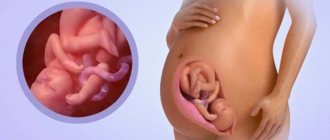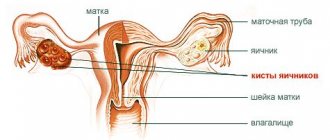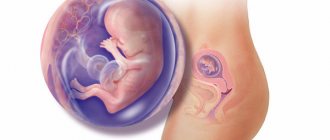Causes of burping rotten eggs during pregnancy
One of the main causes of belching with a characteristic odor is a malfunction of the digestive system; this condition is especially often observed in those who like to eat in large quantities.
Belching rotten eggs during pregnancy may also indicate the presence of peptic ulcers, liver disorders, and inflammation of the gastrointestinal mucosa.
In pregnant women, a similar phenomenon may also be associated with toxicosis.
Belching can be provoked by low bending, lying down, or turning to the sides.
[11]
Belching is the release of air from the stomach into the oral cavity.
During pregnancy, many women are concerned about digestive problems, which include constipation, loose stools, heartburn, and belching.
Belching is often associated with physiological reasons that occur to a woman: hormonal changes, disruptions in the functioning of the nervous system, an enlarged uterus, which puts pressure on the internal organs. But it is worth noting that in this case, belching begins to bother the woman only after the 2nd trimester.
During pregnancy, belching rotten eggs is most often associated with overeating, but can also indicate serious illnesses, for example, gastritis.
Pathological causes
There are several types of belching:
- belching air;
- belching sour;
- belching bitter;
- burp rotten.
Based on the nature of the belching, one can assume its cause and select the optimal treatment, taking into account the duration of pregnancy.
Belching air
Aerophagia, or belching of air, occurs from time to time in all healthy people. In this condition, a small amount of air without a specific taste or smell occurs. Belching is not accompanied by pain or any other manifestation of discomfort. Increased belching of air is observed in the second half of pregnancy and is considered a completely normal phenomenon during this period.
Belching occurs when a large amount of air is swallowed. Entering the stomach, the air stretches its walls, after which it returns to the esophagus and oral cavity. The likelihood of air belching increases under the following conditions:
- binge eating;
- drinking carbonated drinks;
- fast food intake;
- smoking;
- talking while eating;
- nasal congestion;
- incorrectly installed dentures;
- stress.
Aerophagia often occurs in mentally unbalanced women prone to hysteria. Such belching occurs after nervous overstrain and persists not only when eating food, but also at rest. In some cases, the help of a psychotherapist may be required.
Aerophagia may be accompanied by the following symptoms:
- moderate pain behind the sternum;
- dyspnea;
- decreased appetite;
- bloating.
If your symptoms worsen or signs that are uncharacteristic of belching appear, you should consult a doctor.
Belching sour
Sour belching is nothing more than a manifestation of gastroesophageal reflux disease (GERD). With this pathology, the lower esophageal sphincter relaxes and periodic reflux of stomach contents back into the esophagus. This symptom often accompanies heartburn and occurs mainly in the second half of pregnancy. In case of chronic pathology of the digestive tract, sour belching can make itself felt in the very early stages.
The likelihood of sour belching increases in the following conditions:
- consumption of foods that increase the production of gastric juice (sour berries, fresh fruits and vegetables, juices, coffee, tea, chocolate);
- binge eating;
- eating while lying down;
- smoking;
- drinking alcohol;
- low physical activity;
- taking certain medications.
The constant reflux of stomach contents into the esophagus leads to the development of inflammation. Hydrochloric acid, pepsin and other enzymes destroy the mucous membrane of the esophagus, which contributes to the occurrence of reflux esophagitis. Sour belching can also be caused by reflux of the contents of the duodenum due to incorrect functioning of the gastric sphincter.
Sour belching is often accompanied by the following symptoms:
- heartburn;
- pain in the epigastric region;
- nausea;
- bloating;
- flatulence.
Sour belching, heartburn and GERD can be a complication of one of the following pathologies:
- chronic gastritis;
- peptic ulcer of the stomach or duodenum;
- hiatal hernia.
To diagnose this pathology, ultrasound, FGDS and other instrumental techniques are performed. After determining the cause of belching, appropriate therapy is prescribed taking into account the severity of the woman’s condition and the duration of pregnancy.
Belching rotten
Belching of rotten eggs (rotten eggs) occurs due to diseases of the stomach. Among the most common causes of this condition are:
- pyloric stenosis;
- atrophic gastritis;
- stomach tumor (including cancer);
- chronic pancreatitis.
The cause of rotten belching is the stagnation of stomach contents and their release through the esophagus into the oral cavity. This phenomenon occurs when the production of hydrochloric acid decreases or there is a deficiency of pancreatic enzymes. Gastric juice loses its bactericidal properties. Inflammation develops and the growth of pathogenic flora is activated. The processes of fermentation and rotting lead to the appearance of belching, which is felt by a person as the taste of rotten eggs in the mouth.
When burping rotten hydrogen sulfide is released, which gives a specific taste to the contents of the stomach. This condition is often accompanied by the following symptoms:
- pain in the epigastric or periumbilical region;
- nausea and vomiting;
- diarrhea or constipation;
- bloating.
Belching rotten is a serious symptom that requires the mandatory help of a specialist. Refusal of medical care can lead to very adverse consequences, including termination of pregnancy.
Belching bitter
A bitter taste in the mouth occurs when bile enters the esophagus and oral cavity. Bile passes into the stomach from the duodenum with sphincter insufficiency: duodenogastric and gastroesophageal reflux. Bitter belching occurs under the following conditions:
- peptic ulcer;
- chronic gastritis;
- JVP (biliary dyskinesia);
- chronic cholecystitis;
- cholelithiasis;
- enterocolitis;
- neoplasms of the digestive tract;
- parasitic infestation.
Bitter belching is often accompanied by a sour taste in the mouth and heartburn. The mechanisms of development of these conditions are similar and clearly indicate problems in the digestive tract. Occasional bitter belching is not dangerous and can occur in healthy people due to overeating and dietary errors. Increased belching, the appearance of abdominal pain and other unpleasant symptoms require mandatory examination by a gastroenterologist.
Symptoms
In addition to belching, a pregnant woman may be bothered by heaviness in the stomach, bloating, increased gas production, and rumbling.
During pregnancy, belching rotten eggs is often accompanied by high fever and diarrhea.
The first signs of belching may be pain in the stomach, a feeling of heaviness, especially after eating. As a result of putrefactive processes occurring in the stomach, gas with a characteristic odor is released, which is released into the oral cavity, causing discomfort. During pregnancy, belching of rotten eggs requires special attention and immediate assistance from a specialist.
Belching rotten eggs during pregnancy can lead to severe intoxication of the body and cause disruption of the internal organs.
If belching is associated with a violation of the digestive process, then when food remains rot in the gastrointestinal tract, highly toxic compounds are formed, which, together with beneficial substances, are absorbed into the blood and poison the body, causing headaches, irritability, weakness, etc.
Belching with the smell of rotten eggs is not the norm; if the cause of this condition is overeating, then in addition to the unpleasant odor, problems with excess weight may appear, which, in turn, leads to an increase in the load on all organs, primarily on the cardiovascular system .
In case of gastrointestinal diseases, belching rotten eggs during pregnancy can pose a serious danger, since gastritis and inflammation of the intestinal mucosa without adequate treatment can lead to internal bleeding and impaired absorption of nutrients (which will affect not only the woman’s condition, but also the health of her child) .
Symptoms and diagnosis
The symptoms of the patient's condition depend on the cause of the symptom. If belching is a manifestation of gastritis or another disease, then it will not be the only symptom. The number of signs depends not only on the disease, but also on its type and stage of development.
The main symptom of the pathological condition is directly related to the belching itself and the unpleasant odor. This often occurs in children. There are known cases in which the symptom occurred in pregnant women. Subsequently, the persistence of the trait was observed in newborns. In any case, you need to pay attention to the unpleasant symptom and immediately visit a doctor.
Diagnostic measures are aimed at identifying the cause itself, which contributed to the appearance of symptoms. In this case, the range of diagnostic methods is huge, which makes it possible to accurately detect the cause of the patient’s condition. The following diagnostic methods are used:
- irrigoscopy;
- General analysis and blood biochemistry;
- examination of stool for the presence of hidden blood;
- carrying out coprogram and colonoscopy;
- the use of manometry techniques, which allows you to analyze the peristalsis of the digestive tract;
- acidity level assessment;
- use of ultrasound;
- X-ray type of examination of the stomach;
- the use of gastroduodenoscopy or fibrogastroscopy.
If a barium x-ray is used, the problem area can be detected. The technique is effective if the patient has an unpleasant belching as a result of a problem with the passage of food masses.
Diagnosis of burping rotten eggs during pregnancy
Belching of rotten eggs during pregnancy is diagnosed mainly based on patient complaints.
First of all, the doctor finds out the woman’s diet, and if it is dominated by fatty, fried foods, he adjusts the diet. The doctor also recommends reducing portions, since in some cases, an unpleasant odor during belching appears due to putrefactive processes in the gastrointestinal tract caused by overeating.
If an unpleasant odor appears during belching and gastrointestinal diseases are suspected, the doctor may prescribe a biopsy of the gastric mucosa and gastrointestinal tests.
A biopsy involves removing a small section of the stomach lining for laboratory testing. This analysis allows you to determine atrophic changes and identify gastritis, stomach ulcers, indigestion, and tumors in the stomach.
A general blood and urine test is also prescribed.
[12], [13], [14]
If belching rotten eggs during pregnancy is caused by diseases of the digestive system, the doctor will prescribe a gastroscopy.
Examination of the upper gastrointestinal tract allows us to identify pathological changes (ulcers, inflammatory processes) in the esophagus, stomach, and duodenum.
Today, gastroscopy is performed using a fiber gastroscope, a fairly thin and flexible hose that is equipped with a fiber-optic system. The moving end allows the specialist to examine the mucous membrane of the esophagus, duodenum, and stomach.
If the condition of the gastrointestinal tract is normal, the doctor may prescribe an ultrasound or radioisotope study (after the second trimester) to detect diseases of other digestive organs (gall bladder, liver).
This type of diagnosis can be called the most important in making the correct diagnosis, especially in the case of pregnant women.
During pregnancy, some diagnostic methods (for example, x-rays) are contraindicated.
But with the help of differential diagnosis, a doctor can distinguish one disease from another, because it is known that many diseases have similar symptoms, but are radically different in terms of treatment.
Belching rotten eggs during pregnancy, as already mentioned, can be associated with a woman’s tendency to eat a lot, especially fatty, fried foods, and also have more serious causes.
At the appointment, the specialist will examine the patient’s complaints and what other symptoms bother her:
pain, constipation, diarrhea, heaviness in the stomach (only after meals or all the time), increased gas formation, bloating, etc.
Using general tests (blood, urine), the doctor can determine whether there is an inflammatory process in the body.
Gradually, excluding diseases that are not suitable for certain symptoms, in the end the specialist will make the only correct diagnosis and prescribe treatment.
[15], [16], [17]
Physiological reasons
It is clear that the body of a pregnant woman functions somewhat differently than the body of an ordinary person. Decreased muscle tone, changes in hormonal levels, compression of adjacent organs by the uterus - all these are factors that provoke belching of eggs during pregnancy.
That is, there are a number of reasons that do not require serious intervention and special treatment - it is enough to correct the pregnant woman’s lifestyle and the situation will improve. These reasons include:
- overeating (eating too much food, taking a long break between meals);
- abuse of “heavy” foods – fatty, fried, spicy foods;
- habit of going to bed immediately after eating.
All of the above can be easily eliminated, as a result of which burping rotten eggs will quickly disappear. A woman, especially in the second half of pregnancy, must follow the following rules:
- eat fractionally, that is, in small portions at short intervals;
- do not take a horizontal position immediately after finishing a meal;
- adhere to healthy eating rules;
- drink enough water.
Forecast
Belching rotten eggs during pregnancy most often has a favorable prognosis, as it is associated with overeating. This condition goes away with dietary adjustments (reducing portions, eliminating fatty, fried foods, etc.).
If the cause of belching is gastrointestinal diseases (ulcers, gastritis, liver dysfunction, inflammation of the mucous membrane), then the prognosis depends on the disease and timely treatment of the underlying disease.
Belching rotten eggs during pregnancy is a rather unpleasant condition that can cause discomfort not only to the woman, but also to others.
If such symptoms appear, you should immediately consult a doctor to identify possible diseases that provoke an unpleasant odor in the gastrointestinal tract.
[22], [23]
Belching rotten eggs during pregnancy is not dangerous if the cause is improper behavior in the process of absorbing food, or it is caused by slowly digested foods. The threat is posed by the uncontrolled release of foul-smelling gases through the mouth, caused by the development (exacerbation) of infectious diseases of the gastrointestinal tract, as well as the prolonged stressful state of the expectant mother.
How to get rid
How to get rid of belching? This question is asked by many pregnant women. The good news is that no special treatment is required. Firstly, this will go away after childbirth, and secondly, most of the reasons for the appearance of such an unpleasant symptom are purely physiological.
To get rid of belching while carrying a child, it will be enough to exclude from the menu foods that provoke active gas formation in the gastrointestinal tract. This means that for a while you need to say goodbye to legumes, grapes, baked goods and cabbage. You should also limit rye bread, potatoes, and oatmeal: due to the consumption of large quantities of such products, people often burp intensely.
You should also give up such a common and bad habit as eating dry food. It provokes excessive gases into the gastrointestinal tract. Carbonated water, especially sweet water, is also harmful to pregnant women. It would probably be unnecessary to remind once again that drinking alcohol and smoking are strictly contraindicated for pregnant women. It is these habits that provoke intense gas formation.
You need to train yourself to eat small portions and often. And if you drink some clean water half an hour before meals, this will also protect you from the risk of overeating, which is dangerous during pregnancy.
You should definitely include fermented milk dishes, soft-boiled eggs, boiled meat or fish in your diet. Baked apples are very useful. You should not wear clothes that squeeze your body.
Diagnostics
To identify pathologies of the liver and gastrointestinal tract, the doctor prescribes the following types of studies:
- Blood tests (clinical, biochemical, for detection of occult blood and detection of parasites) and feces.
- X-ray of the gastrointestinal tract and ultrasound.
- Fibrogastroscopy (or endoscopy).
- Irrigoscopy, others.
- Conducts a visual inspection, measures pressure and temperature.
- If VSD is suspected, he prescribes: MRI, CT scan of blood vessels, autonomic functional tests, electrocardiography.
- To determine parasitic infection in the blood, serological testing, hemoscanning, and ELISA are performed.
To get rid of rotten egg belching during pregnancy, it is important to promptly identify the factors that provoke it, so you need to register with a gynecologist as early as possible.
Types of belching
- Belching air - most often occurs as a result of talking while eating, eating large pieces of food, or insufficient chewing. After such a meal, most often it is the air that has entered the gastric tract that comes out, and hiccups may occur.
- Belching “rotten eggs” indicates a violation in the woman’s diet. Belching with an unpleasant odor is mainly influenced by overeating and toxicosis, so in addition to belching, pregnant women also begin to worry about nausea. To clarify the diagnosis, you need to undergo examination by a gastroenterologist, since belching with an unpleasant musty odor may also indicate the presence of inflammatory changes in the mucous membrane of the intestines, stomach and duodenum, as well as liver disorders. To prevent belching with an unpleasant odor from appearing, you need to follow the following rules: do not overeat, get up from the table with a slight feeling of hunger, eat at regular intervals, do not eat before bed, drink the required amount of water, limit the consumption of sweets and protein foods. To prevent belching, you can drink tea with lemon balm leaves.
- Belching with heartburn - most pregnant women experience in the later stages of pregnancy, from approximately the twentieth to the thirtieth week. The reasons for such belching are the reflux of acidic gastric contents into the esophagus and irritation of the mucous membrane with hydrochloric acid. The intake of acidic contents is associated with relaxation of the sphincter ring of the esophagus and the formation of a lumen between it and the stomach. To eliminate belching with heartburn, a diet will help the expectant mother. It is advisable to avoid fresh bread, boiled and fried eggs, strong broths, pickles, smoked foods, marinades, sparkling water and coffee. To more accurately determine the foods that provoke sour belching with heartburn, a pregnant woman needs to monitor her condition and pay attention to what exactly caused heartburn. The menu of a woman expecting a child should include more fermented milk products and cereals. During the day you can snack on almonds or walnuts.
- Frequent, strong belching during pregnancy occurs in most expectant mothers. It occurs due to pressure on the stomach. Belching is difficult to prevent because it is impossible to regulate fetal pressure. Mom is only recommended to follow a diet, follow the correct sleep and rest schedule. After the baby is born, the signs of belching disappear.
Treatment
After identifying the type of disease (as well as the cause), the doctor will definitely prescribe medications that are, if possible, harmless to pregnant women and the unborn child.
But if the disease is already known, and the factors that provoke belching of rotten eggs in pregnant women are not pathological, then the following measures can be taken.
First aid for belching
What you can do before your medical examination:
The doctor will prescribe other medications, since any self-medication causes harm to both the expectant mother and the baby.
Often, the appearance of belching during pregnancy with the smell of rotten eggs is not associated with diseases, since women who register early are constantly tested and pathologies are detected, and treatment is carried out in a timely manner.
What can be done if hydrogen sulfide is released from the stomach due to insufficient digestion of food:
- Lunch, dinner, afternoon snack, and breakfast should be done by the hour, preferably at the same time.
- Take your time eating and stop talking so as not to swallow air.
- Do not consume food in large quantities, it is better to eat less, but more often.
- Avoid foods that irritate the gastric mucosa: sour, bitter, spicy, salty, and also overly sweet.
- Do not drink carbonated liquids.
- Stop eating fatty, smoked, overcooked foods. As well as cakes, canned food, sausages, industrial and homemade semi-finished products that are harmful during pregnancy. All of them increase the acidity of gastric juice, which causes stagnation, causing belching of a rotten egg.
- It is not recommended to eat immediately before bed, since the digestion process slows down significantly at night.
- Avoid physical inactivity; constantly spending time in a lying position interferes with the absorption of protein foods, and this is what causes the rotten smell when belching.
- It’s not even worth talking about alcohol and tobacco; everyone knows how toxic they are for mother and baby.
Which doctor should I contact if I have belching during pregnancy?
Constant belching of sour or rotten eggs during pregnancy is a reason to contact a gastroenterologist. The specialist will explain to the expectant mother what could have caused this symptom and tell her how to get rid of it.
Drug therapy is not always necessary. But if the need arises, treatment is carried out with drugs that are safe for the fetus. Most often, expectant mothers are diagnosed with gastritis. Effective medications in this case are: Maalox, Phosphalugel, Rennie. Thanks to them, the acidity of gastric juice decreases, pain, belching and nausea disappear during pregnancy. Read more about using Rennie during pregnancy →
Forecast
Prognosis for pregnant women
It is necessarily favorable in the following cases:
- If medical monitoring of a woman’s pregnancy began at an early stage.
- It is important to strictly and accurately follow the doctor’s instructions regarding the treatment of pathologies that cause foul-smelling belching.
- If the doctor insists on any special diet, you must follow it unquestioningly.
- Despite all the doctor’s recommendations, the only way to worsen the prognosis is self-medication with medicines from the pharmacy and folk methods.
Compliance with the diet, prescribed treatment, and preventive measures will certainly help to avoid unwanted consequences that are dangerous for the mother and baby.
Complications
As a matter of urgency, abandoning everything else, you should go to the doctor if the following symptoms appear against the background of belching a rotten egg:
- Spasms of the larynx and esophagus, expressed by pain when swallowing or moving food into the stomach.
- Constant feeling of metallic, sour, bitter, rotten taste.
- Blood is released during bowel movements.
- Swelling of the throat, abdomen, and legs occurs.
- It becomes difficult to inhale and exhale.
- An abnormal heart rhythm appears.
- If the belching is intense to the point of vomiting, it constantly torments, intensifies at night.
Such signs signal the development of complex inflammatory processes in the gastrointestinal tract and liver. Or about acute heart failure.
Complications will not appear if all the efforts of the woman, her family and friends are aimed at improving health, comfortable living conditions, creating a good moral atmosphere and good mood. Take care of your loved ones!
When to be afraid of belching:
Noticed a mistake? Select it and press Ctrl+Enter to let us know.
Belching is the involuntary expulsion of air from the stomach through the mouth, caused by excessive accumulation of gases in the digestive tract.
Supposed causes and symptoms of belching with the smell of hydrogen sulfide
In pregnant women, belching is explained by two main conditions of formation: physiological reasons, or a pathological state of the body.
Physiological factors that provoke the formation of gases
| Hormonal changes | Enlarged uterus | Misbehavior |
| Excess progesterone causes slower digestion of food and the appearance of stagnation. | Compression of the intestines and stomach occurs. | While eating, conversations take place; food is not sufficiently processed by saliva. |
| The muscle tone of the gastrointestinal valve decreases and it does not close tightly. | The gastrointestinal tract organs gradually change their location. | Haste causes the swallowing of large pieces of food; they take too long to digest in the stomach |
| A splash of stormy joyful emotions leads to overeating. | The pressure on the diaphragm increases. | Eating while reclining, as well as going to bed immediately after lunch, causes bloating and belching. |
| Negative experiences provoke food refusal. | The appearance of persistent, strong, constant belching is a harbinger of imminent labor. | Excessive consumption of sweet, fatty, sulfur-containing foods rich in fiber and starch, as well as protein foods increases gas formation. |
In addition, belching of hydrogen sulfide in the 2nd and 3rd trimester can be caused by rapid bending over to fasten shoes. Turning on your side while lying on the sofa. Sudden getting up after sleep. That is, any awkward movements.
All of the listed factors in the formation of belching rotten eggs during pregnancy are not dangerous for the mother and the formation (development) of the child. However, in order to avoid unpleasant sensations, you should change your behavior tactics: do not give vent to emotions, exclude some foods from the diet, eat in a timely manner, in small portions, chew food thoroughly.
There is nothing you can do about an enlarging uterus, so you need to happily accept such a minor nuisance as belching rotten eggs during pregnancy. It will pass immediately after the arrival of the long-awaited baby.
Pathological causes and symptoms
Causes of belching in pregnant women
The smell of hydrogen sulfide during belching, combined with pain in the abdomen, changes in stool and flatulence, is an indicative symptom indicating the development (exacerbation) of pathologies of the gastrointestinal tract, liver, parasitic infestation, or VSD (vegetative-vascular dystonia).
The fact is that the female body experiences a high load when carrying a child. The immune system devotes all its strength to the formation of a healthy fetus, and the mother is left with very few of the body’s protective bodies.
You can find out the pathological cause of belching rotten eggs in a pregnant woman by the accompanying symptoms:
| Diseases stomach and intestines: SIBO, bacterial infections, gastritis, ulcers, oncology. | Pathologies of the gallbladder and liver | Infections with protozoan parasites and helminths | Vegetovascular dystonia |
| Pain in the esophagus, stomach, intestines. | Yellowing of the sclera of the eyes, mucous membranes and skin. | Nausea, constipation, diarrhea, colic, heartburn. Flatulence. Sour, bitter taste. | Bloating, colic, flatulence, vomiting due to a stressful situation. |
| Heartburn. | Darkening of urine color. | Weight loss (gain). | Attacks of fear, anxiety. |
| Constipation (or diarrhea). | Bitter taste in the mouth. | Papillomas, moles, dark spots on the skin. | Increased heart rate, increased blood pressure. |
| Vomiting (nausea). | Swelling of the abdomen, legs. | Swelling of the skin, rash. | Dizziness. |
| Flatulence, bloating, colic. | Heartburn, bloating, nausea. | Dizziness, nervousness, bruxism. | Insomnia, tremors, fainting, numbness of the limbs. |
| Insomnia, weakness. | Urticaria rash. | Cough, rhinitis. | Sweating. Nervous cough. |
| Impurities of blood in the stool mass. | Impotence, temperature. | Weakness, hair loss. | Weakness, shortness of breath, weather dependence. |
Belching during pregnancy can signal a disturbance in cardiac activity, so if arrhythmia, difficulty breathing, or pain in the sternum or under the shoulder blade occurs, consult a doctor immediately.
Causes of belching
During pregnancy, problems with the digestive system often arise: constipation, diarrhea, heartburn. Belching is also a fairly common complaint among expectant mothers.
In most cases, belching in pregnant women is due to physiological reasons:
- Changes in hormonal levels;
- Dysfunction of the autonomic nervous system;
- An increase in the size of the uterus, resulting in displacement and pressure on the organs of the digestive system.
Factors that provoke the development of belching:
- Overeating, eating a large amount of food at one time;
- Eating large amounts of fried, spicy foods, smoked foods, marinades, sour berries and fruits;
- Consumption of foods that cause fermentation: cabbage, beans, beans;
- Prolonged stay in a lying position;
- Sudden bending of the body forward (for example, when putting on shoes).
Information Belching due to physiological reasons develops no earlier than the 2nd trimester, occurs quite rarely and lasts no more than 1-2 hours. As a rule, during pregnancy there is sour belching (if you abuse fatty foods) or belching with rotten eggs (if you overeat).
It should be remembered that belching is not always a harmless phenomenon, but is often a sign of serious diseases of the gastrointestinal tract:
- Gastritis (characteristic belching with a sour or rotten taste, belching air);
- Gastroduodenitis (belching with a sour or rotten taste);
- Peptic ulcer (belching with a sour taste);
- Pathologies of the gallbladder (belching with a bitter taste);
- Intestinal pathologies (belching with a putrid odor)
Causes
Belching air during pregnancy can occur for the following reasons:
- Hormonal disorders in the first third of pregnancy. High progesterone levels are especially to blame for this. Food stays in the stomach for a long time, and the sour juice begins to irritate it. This produces gases and may cause heartburn.
- Belching during pregnancy in late stages occurs due to deformation of the stomach. Due to the fact that this symptom appears due to a significant increase in the size of the uterus, this option is the norm.
- Overeating or eating dry food can often cause severe gas formation.
- Sometimes belching happens with an empty stomach. This happens due to malnutrition and preoccupation of the expectant mother with diets.
Remember! During pregnancy, dieting is very dangerous, as it can cause vitamin deficiency and insufficient intake of nutrients into the body. So the best option in this case would be a proper and balanced diet.
- Increased physical activity in some cases leads to increased formation of gases. So physical education during pregnancy should be adequate.
The indicated factors for the appearance of belching during pregnancy in the early stages give grounds to assert that in some cases it is one of the prominent signs of the beginning of the period of bearing a child.
The following factors provoke belching and nausea:
- non-compliance with the diet, eating a large amount of sweets, marinades, pickles (in general, it is recommended to stay away from such foods, since a rational healthy diet is more important for a woman);
- long periods of lying down;
- turning over from one side to the other too often;
- strong body bends.
It is recommended to avoid such provoking factors and always monitor correct posture.
Treatment and prevention of belching during pregnancy
It makes no sense to treat physiological belching in itself, because... There is no way to eliminate the factors that cause it before birth. As a rule, the doctor gives the woman a number of recommendations to prevent belching:
- Fractional frequent meals in small portions;
- Exclusion from the daily diet of foods that enhance fermentation;
- Refusal of carbonated drinks;
- Limiting intake of fatty, spicy, smoked foods, sour berries and fruits;
- Eating fruits and vegetables only in baked and boiled form;
- Avoid staying in uncomfortable positions for long periods of time;
- Do not wear tight, constricting clothing;
- You should not lie down immediately after eating.
In order to eliminate pathological belching, it is necessary to treat the underlying disease. In most cases, the woman is hospitalized and therapeutic measures are carried out under the supervision of a gastroenterologist, surgeon and therapist.
How to overcome discomfort?
What to do if discomfort occurs in early or late pregnancy? There are several ways in which you can get rid of such manifestations. The first thing you need to pay attention to is your diet. You can get rid of belching rotten eggs and such an unpleasant symptom as nausea by organizing proper nutrition.
Note! In the early stages, women experience cravings for certain foods. Despite this, in the first weeks of pregnancy you should not overload your stomach and include non-recommended foods in your diet.
The physiological release of air during pregnancy cannot be treated, since this symptom depends on the effect of progesterone on the body. In this case, relaxation of the esophageal sphincter is noted, which is the main reason for the involuntary release of gases from the oral cavity. Women are advised to pay attention to gases that come out accompanied by the smell of rotten eggs.
There are a number of preventive recommendations with which you can combat unpleasant manifestations:
- you need to eat fractionally;
- It is recommended to avoid legumes, fermentable foods and carbonated drinks;
- It is imperative to limit spicy foods;
- It is recommended to bake or boil vegetables and fruits.
If you experience unpleasant symptoms in the first weeks after conception, it is not recommended to take a horizontal body position immediately after eating. After eating, at least 40 minutes should pass. It is imperative that you consult a doctor and undergo a diagnosis of intestinal and gastric diseases. Most often, pregnant women are hospitalized and prescribed conservative treatment under the supervision of a surgeon, gastroenterologist and obstetrician-gynecologist.
Many pregnant women experience burping of rotten eggs and begin to panic. Don't worry, it's quite simple.
Traditional methods of treatment and prevention
- Calamus rhizome powder. Take a third of a teaspoon before meals;
- Centaury infusion. Pour 10 grams of centaury herb with a glass of boiling water and leave for 3 hours. Take 1 tablespoon 30 minutes before meals with each meal;
- Tea with lemon balm or mint;
- Heather decoction. Pour 15 grams of heather into 0.5 liters of water and boil for 5 minutes. Take a third of a glass 3-4 times a day;
- Mint essence. Add 2-3 drops of mint essence to a glass of water. Take daily for 15 days;
- Ginger tea. Take daily after meals;
- Soda. Add a teaspoon of baking soda to a glass of water. Take when belching.
Additionally, in order to eliminate pathological belching, it is necessary to treat the underlying disease. In most cases, the woman is hospitalized and therapeutic measures are carried out under the supervision of a gastroenterologist, surgeon and therapist.
Prevention
All measures to prevent and prevent belching of rotten eggs during pregnancy can be expressed in several points to protect the health of mother and baby:
- Don't overeat, but also forget about diets.
- Don’t take too many bites, but long breaks between meals are also harmful.
- Walk more, but avoid sudden movements.
- Do gymnastics, but without fanaticism.
- Treat diseases of the gastrointestinal tract, liver, etc. in a timely manner, but not independently, but under medical supervision.
- You should not buy expired or foul-smelling products.
- Clean water is better for drinking, not tea, coffee, or compotes. You should not absorb a lot of liquid while eating, this leads to dilution of gastric secretion and slower digestion of food.
- If belching a rotten egg during pregnancy is a companion to eating foods high in sulfur, avoid consuming fresh vegetables such as cabbage, lettuce, tomatoes, onions, garlic, and peas. And fruits: bananas, watermelons, avocados. As well as sunflower seeds, nuts, and corn.
- If your stomach does not digest animal proteins sufficiently, limit your diet to milk, eggs, beef, and various poultry.
- In case of celiac disease (inability to digest grains), to prevent belching, it is enough to exclude baked goods and cereals from the diet.
- If food stays in the stomach for a very long time, try to diversify your daily menu. Perhaps the insufficient formation of enzymes occurs because food is absorbed without the pleasure of contemplation and pleasant taste sensations.
The processes of intestinal seething are often provoked by sweets in combination with foods rich in plant and animal amino acids; even if you slightly reduce the daily intake of sugar, belching may disappear imperceptibly for the entire duration of pregnancy.









